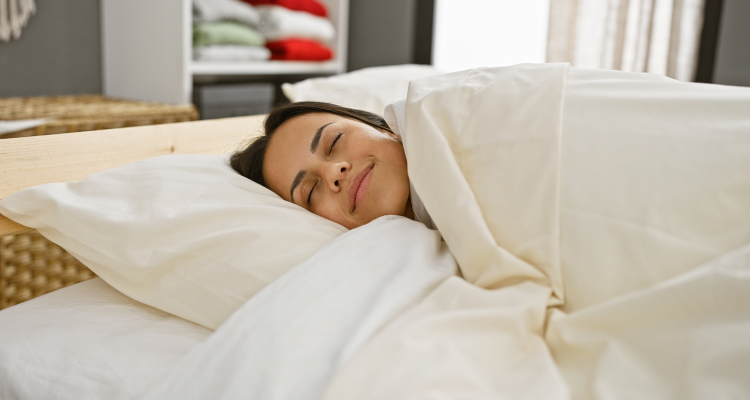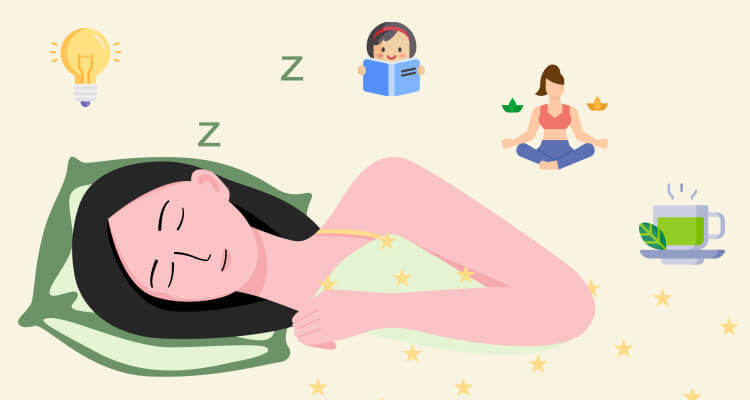Sleep is often seen as essential yet overlooked—something we need to get through the day but don’t think about until we’re lying awake at 2 a.m., wondering why we’re so tired. Research has shown that sleep deprivation impacts our mood, cognitive function, and emotional regulation. In this article, we explore the complex relationship between sleep and mental health, examining how poor sleep habits can contribute to conditions like anxiety, depression, and even psychosis.
Understanding the Connection Between Sleep and Mental Health
According to recent studies in the United States, one out of every three adults reports not getting enough sleep. Inadequate sleep quality can reduce energy, affect mood, disrupt hormone balance, and impair the body’s ability to combat chronic infections.
The relationship between sleep and mental health is profound and intricate, with each influencing the other in a delicate balance. Quality sleep is essential for maintaining mental well-being. Insufficient or poor-quality sleep can exacerbate anxiety, depression, and other disorders. Conversely, mental health challenges often lead to sleep disturbances such as insomnia or irregular sleep-wake cycles.
Why an Integrative Approach Matters
An integrative approach combines conventional therapies with complementary modalities such as holistic practices, diet, and Yoga. These methods emphasize the interconnectedness of mind, body, and overall well-being, offering effective ways to address both sleep and mental health concerns.
Recommended Herbs for Proper Sleep
In Ayurveda, herbal supplements play a vital role in promoting restful sleep and supporting mental equilibrium.
Herbs such as ashwagandha (Withania somnifera), Mandookaparni (Centella asiatica), and Jatamansi (Nardostachys) are renowned for their adaptogenic properties, helping the body adapt to stress and promoting relaxation. These herbs are used in formulations tailored to address sleep disturbances and alleviate symptoms of anxiety and depression.
The Role of Diet and Yoga
Dietary modifications are another cornerstone of Ayurvedic intervention for sleep and mental health. According to Ayurveda, the foods we consume can either nourish or disrupt our body’s natural balance. Incorporating nutrient-rich foods, such as whole grains, leafy greens, and healthy fats, while minimizing processed foods and stimulants like caffeine, can support stable energy levels and promote restful sleep.
Yoga emphasizes breath awareness, mindful movement, and relaxation techniques, offering profound benefits for both sleep and mental health. Practices such as gentle yoga asanas like Corpse Pose, Nadishodhana, Bhramari pranayama (breathwork), and relaxation techniques help calm the mind, reduce stress, and prepare the body for restorative sleep.
By integrating Ayurveda’s holistic principles into conventional treatment approaches, individuals can cultivate a comprehensive strategy for improving sleep and enhancing mental well-being. This integrative approach addresses the root causes of sleep disturbances and mental health challenges, empowering individuals to achieve balance and vitality.
Live Your Best Life Protocol for Sleep & Mental Health
At Live Your Best Life, we recognize the intricate connection between sleep and mental health, and the profound impact both have on overall well-being. We help you restore this balance through a holistic approach that integrates Ayurvedic principles, including herbal supplements like ashwagandha, Mandookaparni, and jatamansi, dietary modifications to support natural energy rhythms, and Yoga practices such as gentle asanas and calming breathwork.
By addressing both the mind and body, our program supports restful sleep, reduces stress and anxiety, and promotes emotional stability. Through these integrative strategies, you can cultivate restorative sleep, enhance mental clarity, and embrace a healthier, more balanced life—empowering you to truly live your best life.



























